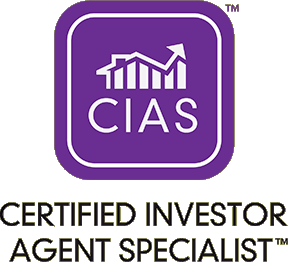Investing in residential real estate has long been a favored method for building wealth and securing financial independence. One of the key strategies that amplifies the potential returns in real estate is the use of leverage, particularly through mortgages. By leveraging mortgages, investors can control properties with relatively little of their own money, thereby multiplying their returns.
How Leverage Multiplies Returns
For example, if you want to buy a $500,000 property, you may only need to put down 20%, or $100,000, and borrow the remaining $400,000 from a lender. This allows you to control a $500,000 asset with only $100,000 of your own money. If the property appreciates by 10% over a year, its value increases to $550,000. Your equity in the property has increased from $100,000 to $150,000, a 50% return on your initial investment, rather than just the 10% appreciation of the property value. This multiplication of returns is the essence of leverage.
Benefits of Using Mortgages for Leverage
- Increased Purchasing Power
One of the most significant advantages of using mortgages is increased purchasing power. By leveraging borrowed funds, investors can acquire more or higher-value properties than they could if they relied solely on their own capital. This expanded purchasing power allows for a diversified portfolio and the ability to capitalize on various market opportunities.
- Higher Returns on Equity
As illustrated in the previous example, leverage can significantly boost the return on equity (ROE). By investing a smaller portion of your own money and borrowing the rest, the percentage return on your initial investment can be much higher, assuming the property appreciates in value.
- Cash Flow and Passive Income
Leveraging mortgages can also enhance cash flow and passive income. By financing a property, you can spread out the cost over time, allowing rental income to cover mortgage payments and potentially generate additional cash flow. This passive income can be used to reinvest, pay down debt, or cover living expenses.
- Tax Advantages
There are several tax benefits associated with using leverage in real estate. Mortgage interest payments are often tax-deductible, which can reduce the overall cost of borrowing. Additionally, depreciation and other property-related expenses can be deducted from rental income, lowering your taxable income and enhancing overall returns.
Risks and Challenges of Leverage
While leverage can amplify returns, it also comes with risks and challenges that investors must carefully consider.
- Increased Debt and Financial Risk
Borrowing money to invest in real estate increases your debt burden and financial risk. If property values decline, you still owe the same amount on your mortgage, which can lead to negative equity and financial strain. In extreme cases, it could result in foreclosure if you’re unable to meet mortgage payments.
- Market Volatility
Real estate markets can be volatile, and property values can fluctuate based on economic conditions, interest rates, and other factors. Leverage magnifies these fluctuations, meaning that downturns in the market can have a more significant impact on your investment’s value and your financial stability.
- Cash Flow Challenges
Using leverage requires careful management of cash flow. Mortgage payments, maintenance costs, property taxes, and other expenses need to be covered by rental income. If rental income falls short or there are unexpected vacancies, you may face difficulties meeting your financial obligations.
- Interest Rate Risk
Changes in interest rates can significantly impact the cost of borrowing and your overall returns. Rising interest rates can increase mortgage payments, reducing cash flow and profitability. Fixed-rate mortgages can mitigate this risk, but adjustable-rate mortgages (ARMs) can expose you to potential increases in borrowing costs.
Strategies for Effectively Using Leverage
To successfully use leverage and maximize returns in residential real estate, investors should adopt strategic approaches and best practices.
- Conduct Thorough Due Diligence
Before leveraging a mortgage to invest in real estate, conduct thorough due diligence on the property, location, and market conditions. Analyze comparable property values, rental income potential, vacancy rates, and economic trends to ensure you’re making an informed investment decision.
- Maintain Adequate Reserves
Maintaining adequate cash reserves is essential when using leverage. Reserves can help cover unexpected expenses, vacancies, and mortgage payments during downturns. A common recommendation is to keep at least three to six months’ worth of expenses in reserve.
- Shop for the Best Financing Options
As with any loan, speak with two or three different lenders to find the best option. While you are probably most concerned with finding the lowest interest rate, also consider the loan terms and fees. Fixed-rate mortgages offer stability in payments, while ARMs may provide lower initial rates but come with interest rate risk. Having options will allow you to select a loan that best fits with your investment strategy.
- Focus on Cash Flow
Prioritize properties that generate positive cash flow, meaning rental income exceeds mortgage payments and other expenses. Positive cash flow properties provide a buffer against market fluctuations and ensure that you can cover your financial obligations even during challenging times.
- Leverage Equity Wisely
As property values appreciate, you can leverage the increased equity in your properties to finance additional investments. This can be done through cash-out refinancing, home equity loans, or lines of credit. However, use this strategy cautiously to avoid overleveraging and increasing financial risk.
- Diversify Your Portfolio
Diversification is a key strategy for managing risk when using leverage. Invest in a mix of properties in different locations and market segments to spread risk and reduce the impact of localized market downturns. Diversification can also enhance overall returns by capturing opportunities across various markets.
A Practical Example: The Power of Appreciation and Refinancing
Suppose I’m a real estate investor who purchased a $600,000 duplex in 2019 with a $120,000 down payment and a $480,000 mortgage. Since its purchase, the property has appreciated to the point where it is now worth $800,000. I decide to refinance and take $160,000 of the equity I’ve built to purchase another investment property. In this way I’ve leveraged appreciation and refinancing to grow my rental portfolio with a relatively small initial investment.
Example 2: Positive Cash Flow and Long-Term Growth
In this scenario I invest $500,000 to purchase a detached, suburban rental property with a $100,000 down payment and a $400,000 mortgage. The property generates $4,000 per month in rental income, with mortgage payments and expenses totaling $3,500, resulting in a positive cash flow of $500 per month. Over the next ten years, I expect the property will appreciate to $700,000, and I further expect to pay the mortgage down to $300,000. Both of these expectations are reasonable given historic trends. At this point I will leverage the increased equity to purchase one or more additional properties, creating a diversified portfolio with substantial cash flow and long-term growth potential.
In Summary
Leverage, when used wisely, is a powerful tool that can significantly enhance returns in residential real estate. By using mortgages to finance property acquisitions, investors can control valuable assets, amplify their returns, and build substantial wealth over time. However, leveraging also comes with risks, including increased debt, market volatility, and cash flow challenges.
To maximize the benefits of leverage while mitigating risks, investors should conduct thorough due diligence, maintain adequate reserves, optimize financing options, focus on positive cash flow, leverage equity wisely, and diversify their portfolios. Through strategic use of leverage, investors can harness the full potential of residential real estate to achieve their financial goals and secure long-term wealth.
In the dynamic world of real estate investing, understanding and effectively utilizing leverage can be the key to unlocking extraordinary returns and building a robust and diversified investment portfolio. Whether you are a seasoned investor or just starting, the power of leverage offers a pathway to financial growth and independence through the strategic use of mortgages in residential real estate.



